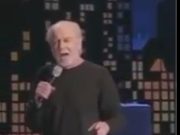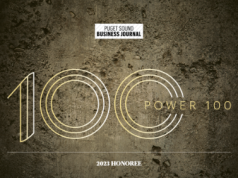 On its cover, the recently released book Digital Moviemaking: The Filmmaker’s Guide to the 21st Century is described as “A Butt-Kicking, Pixel Twisting Vision of the Digital Future and How to Make Your Next Movie on Your Credit Card.”
On its cover, the recently released book Digital Moviemaking: The Filmmaker’s Guide to the 21st Century is described as “A Butt-Kicking, Pixel Twisting Vision of the Digital Future and How to Make Your Next Movie on Your Credit Card.”
Such a bold, brash manifesto requires a stalwart champion. It finds one in the personage of Mr. Ken Lee, a recent emigre to Seattle who is Vice President of the book’s publisher, Michael Wiese Productions.
MWP specializes in publishing books about the movie trade and has turned out many bestsellers in several categories of moviemaking, including directing, writing, producing, budgeting and financing a film project (see book roster at end of article). They also have a highly-respected seminar program. Ken recently finished an extensive seminar series for Northwest filmmakers at the Henry Museum. We talked to him about Digital Moviemaking and exactly how butt-kicking and pixel twisting was its future in Seattle, his new home.–LS
Seattle24x7: Ken, what brought you to Seattle from Hollywood?
Lee: Number one, this is a place I chose to settle down and live. I love the way of life here. Secondly, in my job at Michael Wiese Productions, I wanted to connect with the film-making community in Seattle. I did that in a number of ways. We were a sponsor of the Seattle Film Festival this year where I met and got to know all the principals of the other media organizations including the Seattle Film Institute, WigglyWorld, the Washington State Film commission, 911 Media Arts and Cinema Seattle. We launched our independent filmmaking seminar in November.
Seattle24x7: Tell us about your company.
Lee: Michael Wiese Productions is a publishing and communications company that specializes in filmmaking. One major area we’re involved in is book publishing, which is one mechanism to get the word out there that filmmaking is part art and part business. If you want to learn how to direct, write, price, budget, finance, we’ve got the best selling books in the world in those categories.
Seattle24x7: Your company’s new book is titled Digital Moviemaking. After reading it, I felt as if almost anyone could go out and produce a digital movie.
Ken Lee: We released it just before Christmas because of the explosion of interest in digital video cameras. If you read the book and can obtain the proper hardware and software, you realize that for a relatively small investment, you can do extraordinary things. You may be aware right now that dozens of filmmakers are making shorts and then posting them or selling them online. Many are doing deals with a variety of different websites such as AtomFilms and Mediatrip.com. A recent short called “George Lucas in Love” got an enormous amount of attention. They put it on Amazon.com and it sold tens of thousands of units.
Seattle24x7: Your company has a Star Wars connection, doesn’t it?
Lee: Michael Wiese produced the short, and our company marketed the ultimate Star Wars parody, which was “Hardware Wars.” It sold 200,000 copies. The effects were enhanced in the 1997 version. We worked with some of the top digital effects pros in the industry to create the Hardware Wars: Special Edition.
Seattle24x7: How is digital technology changing the process by which movies get made?
Lee: There are cost factors, of course, but also speed and mobility. For example, there are a number of feature films, which are able to utilize a lot of digital video cameras shooting simultaneously in multiple sets, because it’s affordable. You can pick up the camera and move it instantaneously. That’s the acquisition mode.
Then you enter the whole realm of editing digital video which gives you enormous flexibility and opportunities to shape things and change things and have multiple passes at it. And finally, you have the delivery mechanism — you can stream the finished work online. So digital technology affects the entire process. And by so doing, it also affects the creative process going on at the front end. When a writer and a producer sit down and start developing a project, usually the writer is thinking in terms of story and content and beats and characters. The producer is thinking about cost and speed, and the number of shooting days, and the number of editing days and so forth. Digital technology afford both of them extraordinary flexibility and versatility.
What digital technology implies for Seattle is that this market could explode in a very short period of time because you have a lot of people here who understand the technology, a lot of money here, and with more infusion of interest, and cash, and enthusiasm about this particular marriage of technology and story content, you have a real opportunity here for producing really unique projects.
Seattle24x7: How is Seattle’s digital-video community perceived by Hollywood?
Lee: At the Streaming Video West conference in Los Angeles, a lot of the key players from the Pacific Northwest made an impression. My observation was that, in that case, there was an overemphasis on the technology and a deemphasis on the filmmaking aspects. You have to understand that no matter what happens with the technology, the writer, the director, the actors, are the ones that actually create the content. I think there still is a prejudice in Hollywood that the folks in the Northwest are the coffee-swilling guys who are really good at technology but who need to learn filmmaking.
Seattle24x7: What is Michael Wiese Producton’s seminar about?
Lee: It’s about the business of being a filmmaker. We help filmmakers understand this is not only about art or personal expression; it’s a business and people need to wake up and understand that. When you’re trying to fund a project, people will want to see numbers, they’ll want to see financial projections, they’ll want to see a real business plan.
Seattle24x7: Who are the audiences for your seminars?
Lee: The audience consists of both new and experienced filmmakers. There’s a lot of talent up here, a lot of people with terrific skills including crafts people and cameramen and other artists. A lot of people didn’t know the fundamentals as they relate to producing a film project. How to find investors. How to engage people and get them excited about your project. The workshop had about 95 people and it was a stunning success. Kodak was a major sponsor, of course. CinemaSeattle and the Seattle Film Institute also helped pull it all together.
Seattle24x7: What is the highlight of the seminar?
Lee: The part that was really exciting was the pitch session which really blew everyone away. Michael would critique people’s pitches. Mostly the pitches were about their independent feature films but also documentary series and videos.
Seattle24x7: It sounds a bit like assertiveness training.
Lee: People from the Pacific Northwest have this natural tendency to be polite, and not to be very boastful about things. In the seminar Michael Wiese had given them permission for the very first time to talk about their project in an open forum. And the results were staggering. People were so excited about sharing their projects and actually talking with other filmmakers. In a couple of instances, we were able to match up filmmakers and investors to get some projects greenlighted so to speak.
Seattle24x7: Do you see the story pitch and the investment pitch to be cousins of one another?
Lee: Absolutely.
Seattle24x7: What is your impression of the video short as a new commercial medium?
Lee: Ultimately, it’s a refection of the micromarketing of America. The parallel is the book/magazine industry. The targeting can get very specific, for example a special magazine created for vegetarians. That sharpened the focus of the magazine movement. In video there’s all sorts of incredibly well targeted marketing.
It’s a question of defining the market. Who’s interested in salsa dancing AND travel AND is single? I think the micromarketing of films is happening because of the ease of entry and the accessibility of information on the Internet. As you know, some of it is content-free and quite lousy, but some of it is quite good. Right now,. people are having so much fun just experimenting and getting their work out there. And if happens to find an audience of one and it can relate one-to-one then it’s a success
Seattle24x7: What does good video do for a website?
Lee: Let me give you an example. One group that we’ve consulted with is www.pitchtv.com. They are a NY-based graphic arts company that creates extremely high-end Flash animation. What they create and like to facilitate is very STICKY content in the form of shorts and flash animation. Once you land on the site you’re going to stay there because you’ll see things that haven’t seen anywhere else on the Web. That’s yet another area where digital moviemaking is making impact on the Web.
Larry Sivitz is Managing Editor of Seattle24x7.com
————————————————————————————-
Interested in learning more about Digital Filmmaking or about the seminar programs of Michael Wiese Productions? Contact Ken Lee at: [email protected] For information on select book titles, see below.
———————————————————————–
Ken Lee
Vice President
Michael Wiese Productions
700 Front Street South, C 108
Issaquah, WA 98027
http://www.mwp.com
Ph: (425) 391-3555
Fax: (425) 391-3527
Resume
Vice President, Michael Wiese Productions (1991-present)
Writer/Producer, PBS, “Kids on the Internet” (1995)
Associate Producer, Howard Rheingold, Living On the Net (1995)
Consultant, for such media companies as Republic Home Video, King World, PBS and dozens of independent producers (1995-Present)
Education
USC, Business Degree.
Michael Wiese Productions best selling line of books are available at your favorite bookstore and Amazon.com. You can also purchase them by calling MWP at 1-800-833-5738 or clicking on http://www.mwp.com
MWP’s best selling line of books includes:
Digital Moviemaking (ISBN:0-941188-30-2)
Highlighted in the article above.
Storyboarding 101 (ISBN: 0-941188-25-6)
Written by Seattle native, James O. Fraioli
Film Directing: Shot by Shot (ISBN:0-941188-10-8)
The world’s best selling book on directing.
The Writer’s Journey (ISBN: 0-941188-70-1)
The best sellling book on writing and mythology.




















